# Campaign parameters
Campaign parameters are used for creating Campaign URL and Reports.
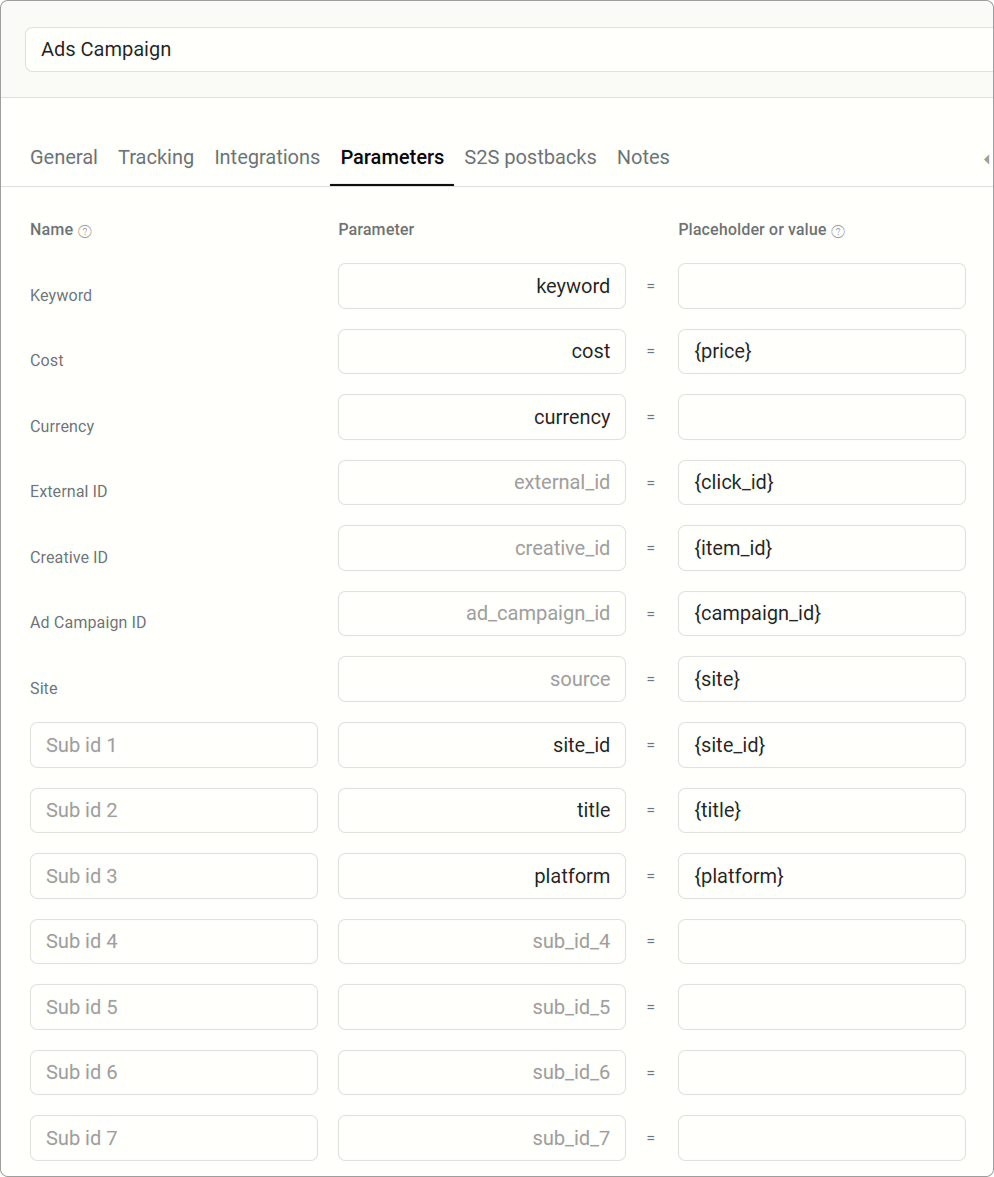
- Name. You can use default names like, "Sub ID 1", "Sub ID 2", or use your own names.
- Parameters. The param must be added to Campaign URL.
- Token or value. You can type static value, like
EUR, or use a placeholders that the traffic source supports.
# List of parameters
The following parameters can be renamed:
keyword- keyword or search phrase.ad_campaign_id— ID of the advertising campaign.creative_id— may be Banner ID or AdSet ID.external_id— some unique click ID from the traffic source.source- site or publisher ID from the traffic source.cost- cost of a click (option "Cost AUTO" must be checked in campaign's settings).sub_id_1..30— additional parameters for generating reports.
WARNING
All parameters are changed to the parameters of the corresponding source.
These parameters cannot be renamed
currency— currency of the cost.charset— charset for value in parameterkeyword.se_referrer— referrer of a search engine. Pass this parameter to pull out the keyword from it.se— search engine name. Ifse_referreris passed, it is unnecessary to passse.
# List of global aliases
Please read Settings Page.
# How to pass the incoming value of a placeholder to the URL of an offer
Let's consider an example of passing the cost per click in the URL of an offer to an affiliate network.
- In the second column of the campaign's parameters, specify the name of the placeholder in which the source sends the real value of the necessary placeholder. In this case, we can leave the default — cost.
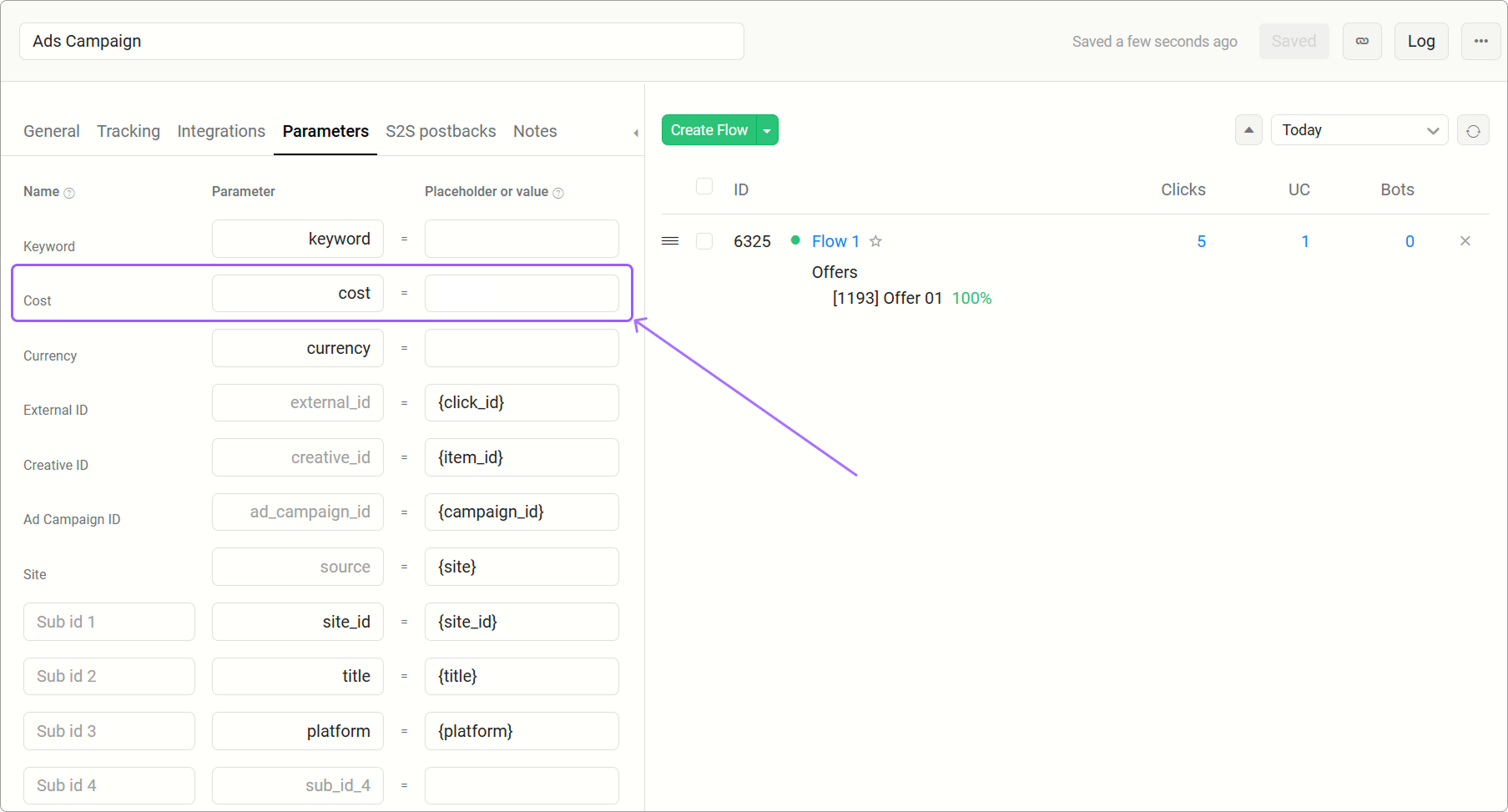
- In the third column of campaign's parameters specify the placeholder, where the source sends real value
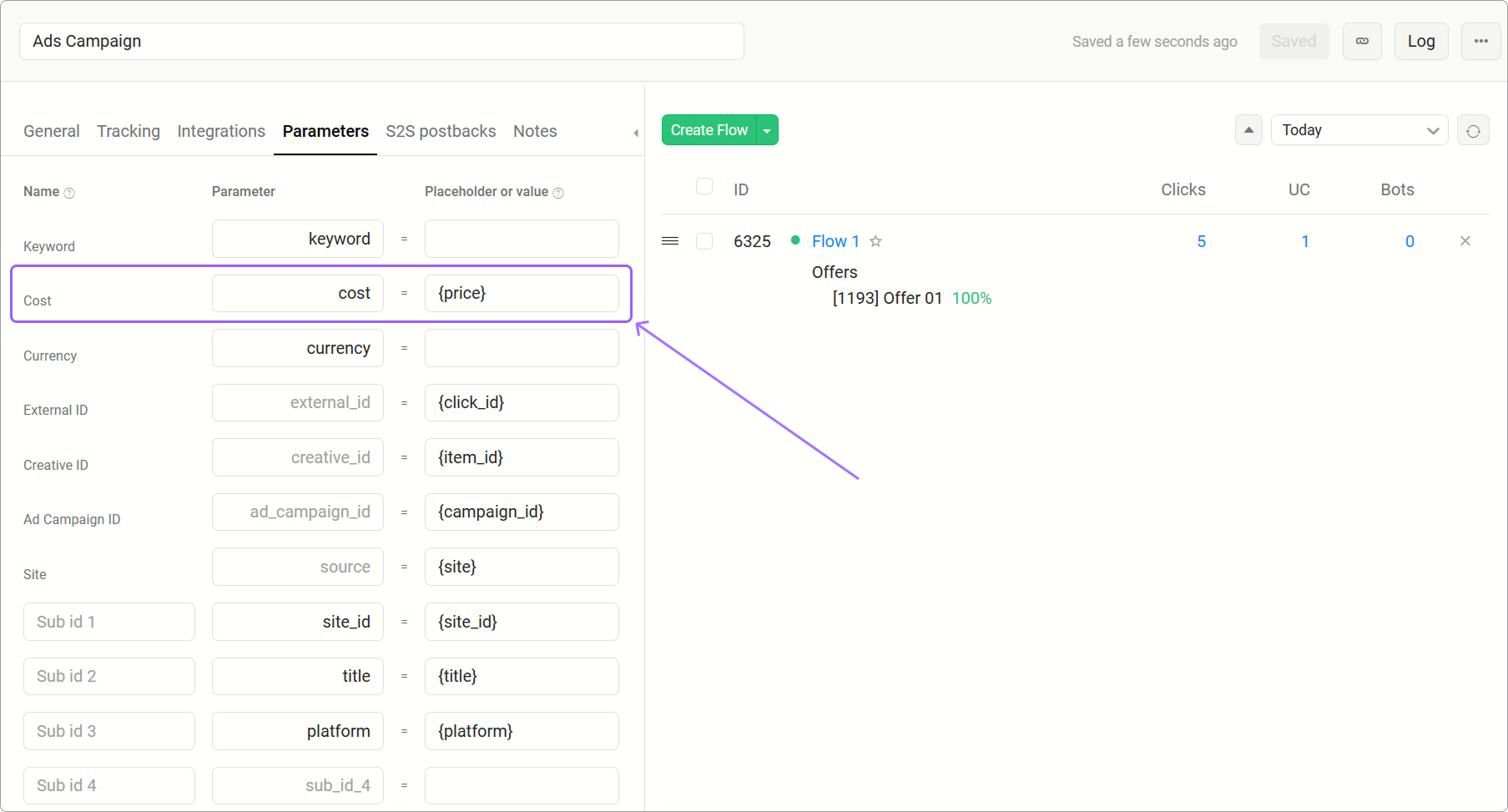
- In the URL of the offer, it is necessary to wrap the name of the placeholder from the second column in the placeholder as {cost} and send it in a suitable placeholder for the affiliate, or CRM. For example
param1, that isparam1={cost}
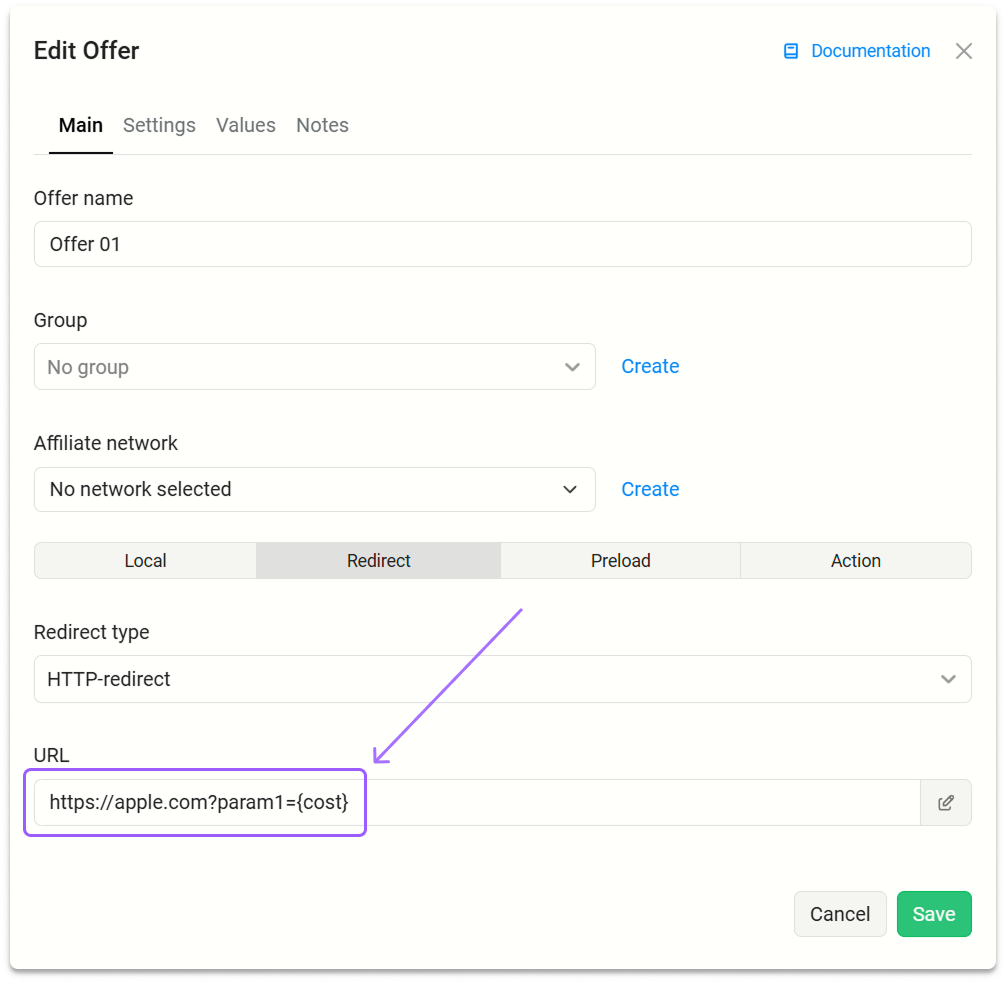
- If
cost=5came from a source, thenparam1=5will be passed to the affiliate link
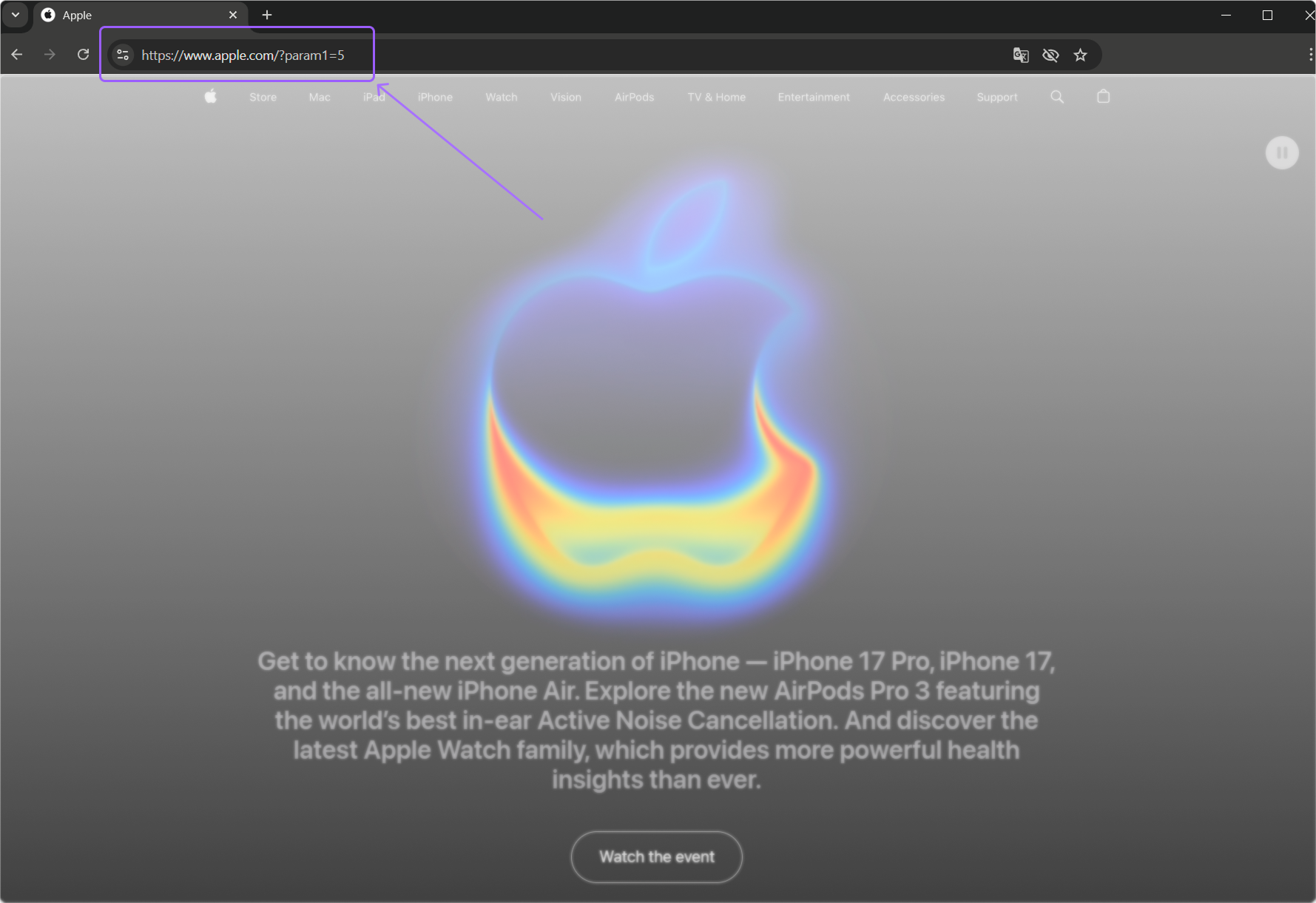
This method of passing values also works for all other campaign's placeholders, including sub_id_1—30.
# How to pass the incoming campaign parameter value to a local landing page or offer
Let's use an example of passing the click cost to a local landing page or offer:
- In the second column of the campaign parameters, specify the parameter name where the source sends the real value in a placeholder. In this case, you can leave the default value as
cost:

- In the third column of the campaign parameters, specify the placeholder in which the source sends the real value:

- In the code of the local landing page or offer, insert an input line to capture the
costparameter:
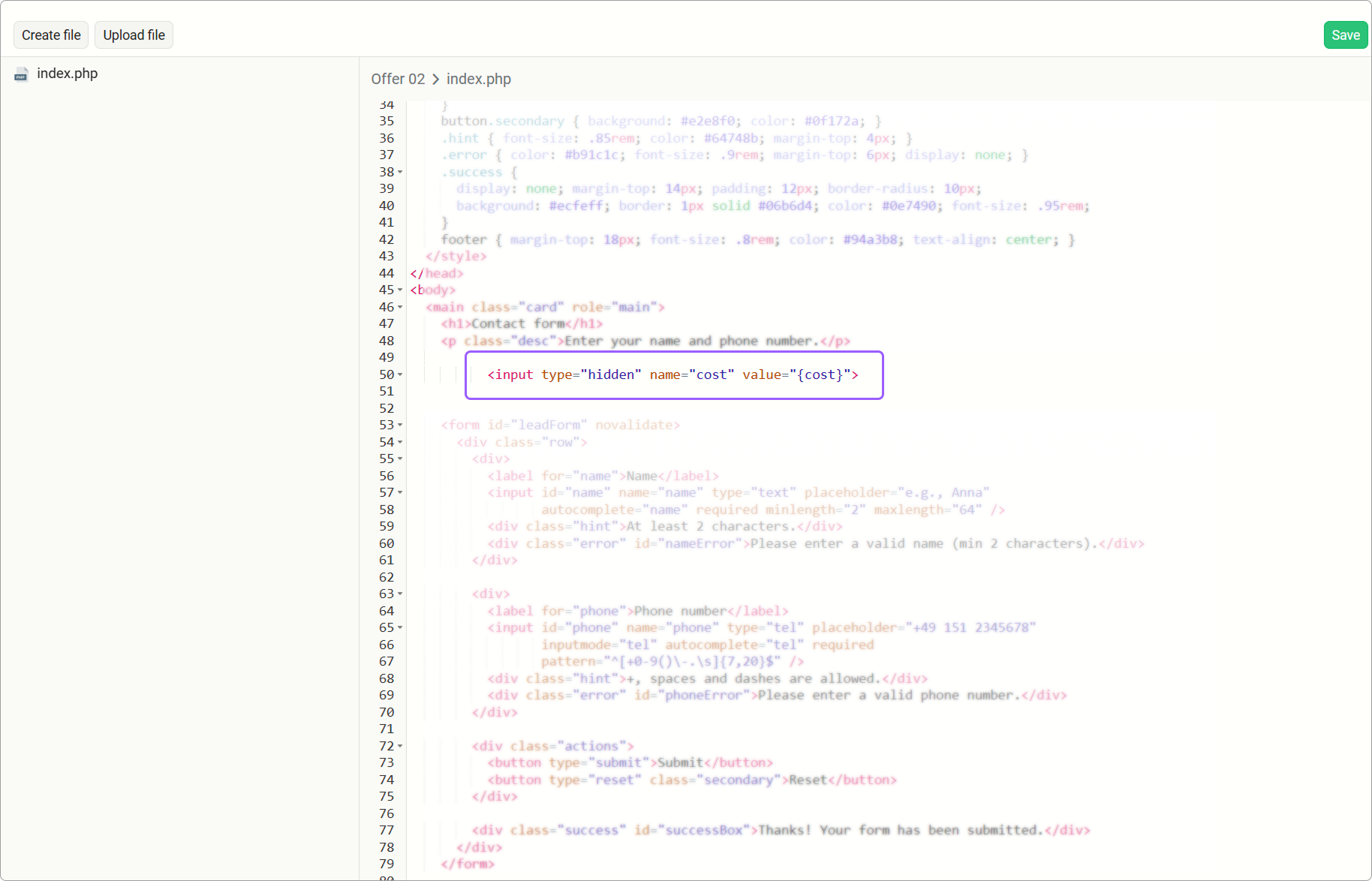
If the source sends the value
cost=5, the code in the local offer or landing page will populate{cost}:<input type="hidden" name="cost" value="5">1
2
3
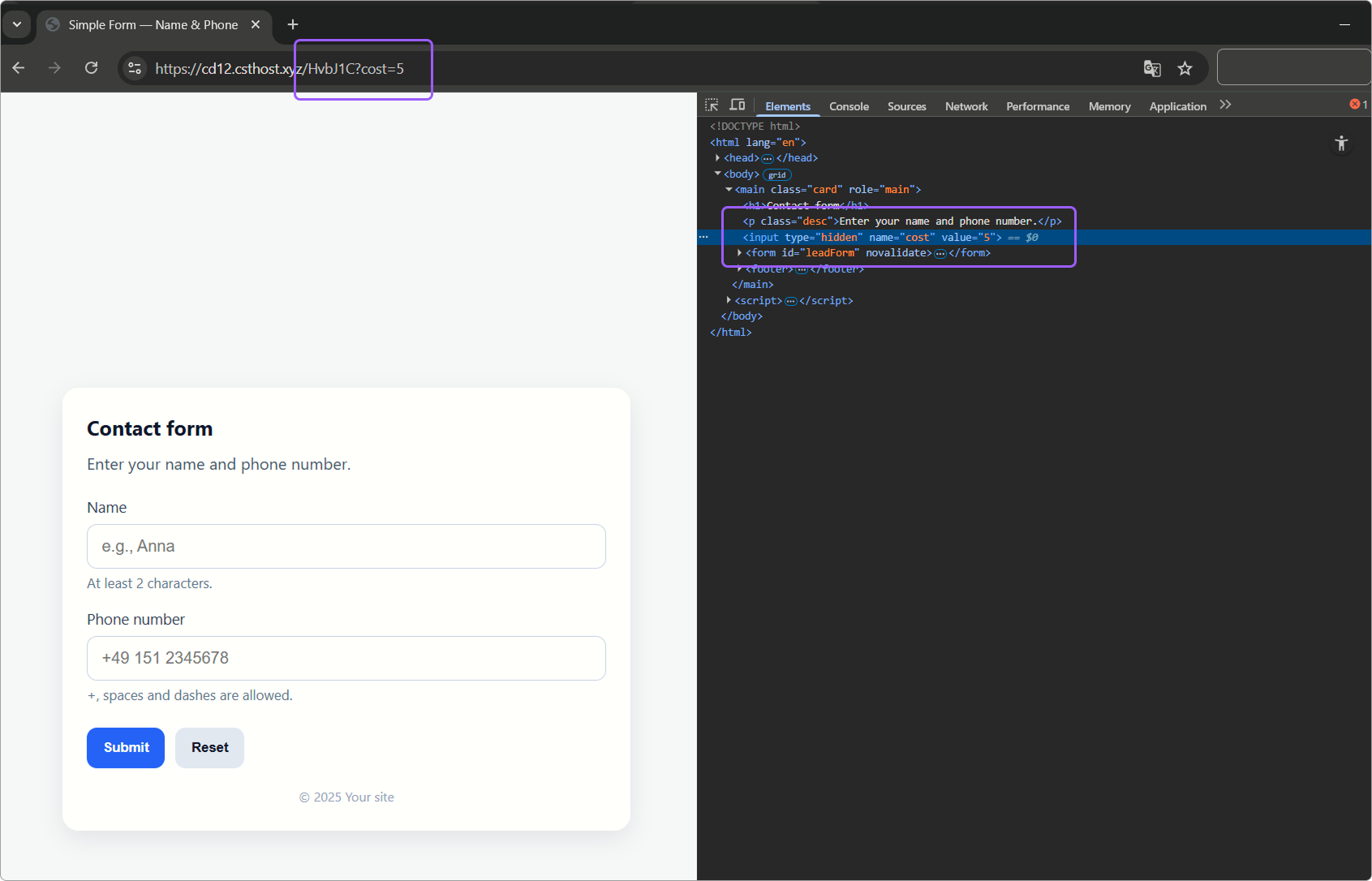
This method of passing parameters works for all other campaign parameters, including sub_id_1-30.
# How to pass the incoming campaign parameter value from local landing page to offer via redirect
Let's consider a case of passing the click price from the local landing page to the offer via redirect:
- In the second column of campaign parameters, specify the name of the parameter in which the source sends the actual value of the necessary tag through the placeholder. In this case, we can leave it as default:
cost:

- In the third column of campaign parameters, specify the placeholder in which the source sends the actual value:

- In the local landing page code, insert the input string to retrieve the
costparameter:

- If the source sends the value
cost=5, the{cost}placeholder will be filled in the local offer or landing page code.
<input type="hidden" name="сost" value="5">

Set up the redirect from the landing page to the offer according to the Create Offer Link guide.
In the offer URL, wrap the parameter name from the second column in the placeholder as
{cost}. Pass it in the appropriate parameter for the affiliate, or CRM, for exampleparam1, that is,param1={cost}.

- If the source sends the value
cost=5, after reaching the local landing page, and redirecting to the offer, the valueparam1=5will be passed to the affiliate network. If the landing page is hosted locally on the tracker, the tracker will automatically send all recorded incoming parameters to the landing or offer via POST method.

This method of passing tags works for all other campaign parameters, including sub_id_1-30.
# How to pass the incoming campaign parameter value from landing page to local offer via redirect
Let's consider a case of passing the click price from the landing page via redirect to the local offer:
- In the second column of campaign parameters, specify the name of the parameter in which the source sends the actual value of the necessary tag through the placeholder. In this case, we can leave it as default:
cost:

- In the landing page URL, wrap the parameter name from the second column in the placeholder as
{cost}and pass it in the appropriate parameter for the affiliate, or CRM, for example,param1, that is,param1={cost}:

- Set up the redirect from the landing page to the offer according to the Create Offer Link guide.
Add the parameter passing code to the redirect to the offer. Example:
<a href="//ip/?_lp=1&_token=<?= urlencode($_GET['_token'])?>¶m1=<?php echo htmlspecialchars($_GET['param1'], ENT_QUOTES, 'UTF-8'); ?>">REPLACE</a>
Where param1 = value to be passed to the local offer.
- In the local offer code, insert the input string to retrieve the
param1parameter.
Replace name with the necessary value if needed.
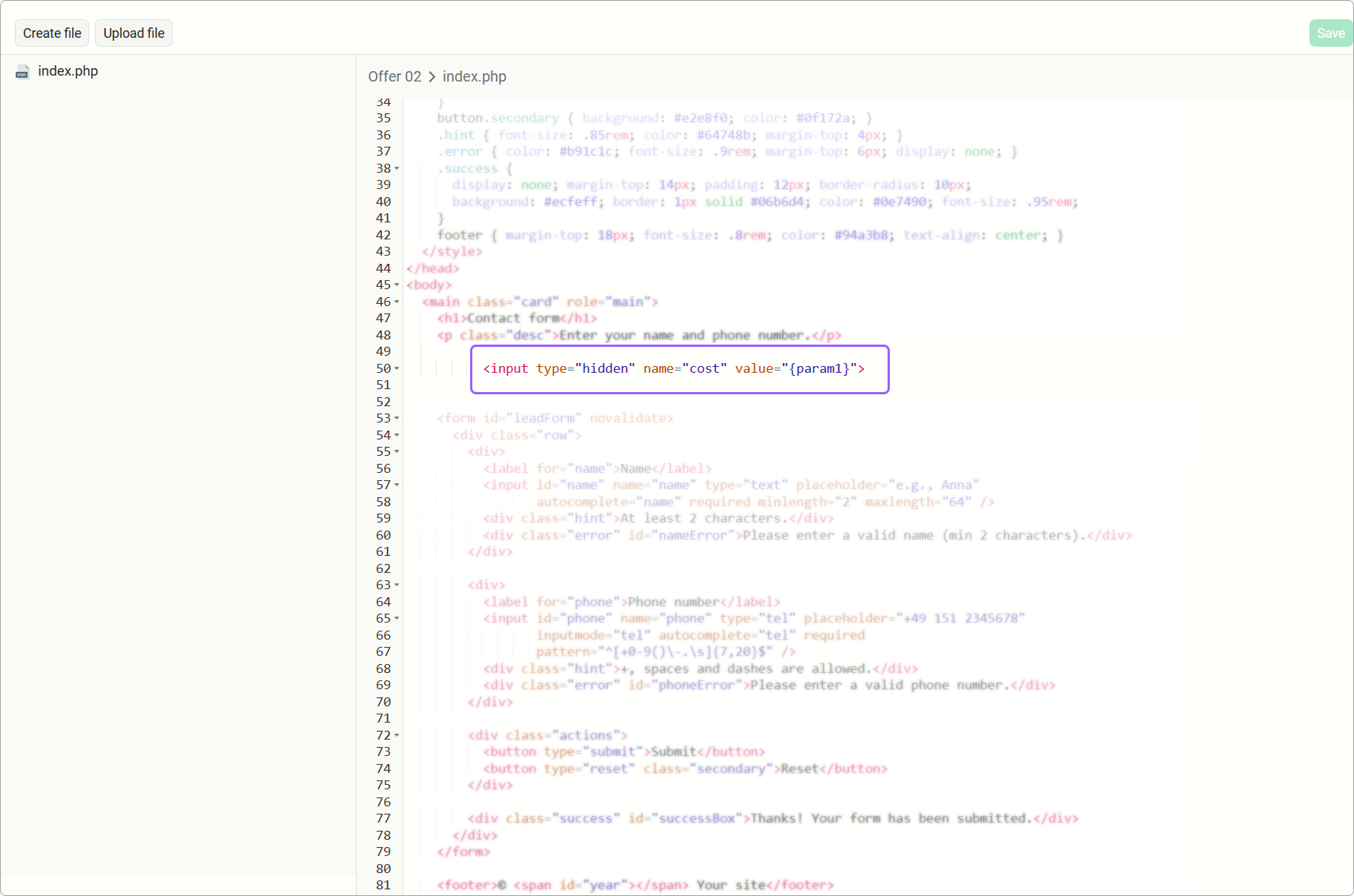
This method of passing tags works for all other campaign parameters, including sub_id_1-30.